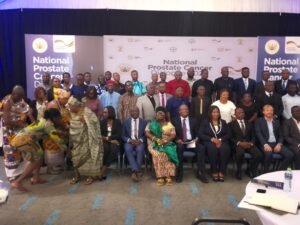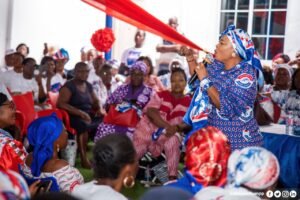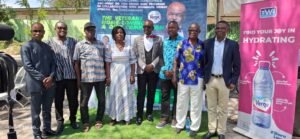
Kumawu, a constituency in the Ashanti Region of Ghana, has a significant electoral history that can provide insights into its political landscape and the potential significance for the upcoming 2024 General Election.
The New Patriotic Party (NPP) has been the dominant political force in Kumawu, consistently winning elections since 1996. In the 1996 election, the NPP secured 15,025 votes, accounting for 49.60% of the total, while the National Democratic Congress (NDC) received 9,354 votes, representing 30.90%.
The NPP’s dominance continued in subsequent elections. In 2000, the NPP increased its vote share to 13,554 votes (57.80%), with the NDC trailing behind at 6,057 votes (25.80%). The NPP’s popularity soared in 2004, garnering 19,223 votes (70.00%), while the NDC received 5,680 votes (20.70%).
Although the NPP experienced a slight decrease in vote share in 2008 with 15,217 votes (56.38%), they still maintained a significant lead over the NDC, who obtained 7,120 votes (26.39%). The NPP regained momentum in 2012, securing 18,858 votes (68.96%), while the NDC received 4,142 votes (15.15%).
The 2016 election marked a peak for the NPP in Kumawu, with 21,794 votes (78.17%), whereas the NDC obtained 5,899 votes (21.16%), demonstrating a significant margin of victory for the NPP.
In the 2020 election, the NPP retained its hold on Kumawu but experienced a decline in vote share, receiving 14,960 votes (51.11%). The NDC received 2,439 votes (8.33%), while an independent candidate, Kwaku Duah, gained considerable support with 11,698 votes (39.96%).
The 2023 by-election in Kumawu confirmed the NPP’s dominance, with their candidate winning with 15,264 votes. The NDC secured 3,569 votes, while the independent candidates, Kwaku Duah and Kwaku Duah Jnr, received 2,459 votes and 62 votes, respectively.
The historical electoral data suggests a strong electoral base for the NPP in Kumawu. The party has consistently garnered a significant portion of the votes, indicating a pattern of support and loyalty among constituents. However, the rise of independent candidates, such as Kwaku Duah, reflects potential shifts in voter sentiment and the emergence of alternative political options.
Looking ahead to the 2024 General Election, Kumawu’s significance lies in its potential contribution to the overall electoral performance of the NPP. As a stronghold for the party, maintaining their dominance in Kumawu will be crucial for the NPP’s aspirations to retain power or secure a majority in the national election.
Furthermore, the performance of independent candidates in recent elections signals the presence of alternative political voices and the potential for a more competitive electoral landscape. Political parties contesting the 2024 General Election will need to develop effective campaign strategies and engage with Kumawu constituents to secure their support and address their concerns.
Additionally, opposition parties such as the NDC need to develop effective campaign strategies to challenge the NPP’s dominance in Kumawu. They must identify key issues, offer alternative policies, and engage with the electorate to gain traction in this traditionally NPP-favoring constituency.
In summary, Kumawu’s electoral history demonstrates the NPP’s stronghold in the constituency, positioning them favorably for the 2024 General Election. However, the rise of independent candidates and potential shifts in voter sentiments add complexity to the political landscape. Effective engagement with constituents and strategic campaign efforts will play a crucial role for all political parties in Kumawu.








